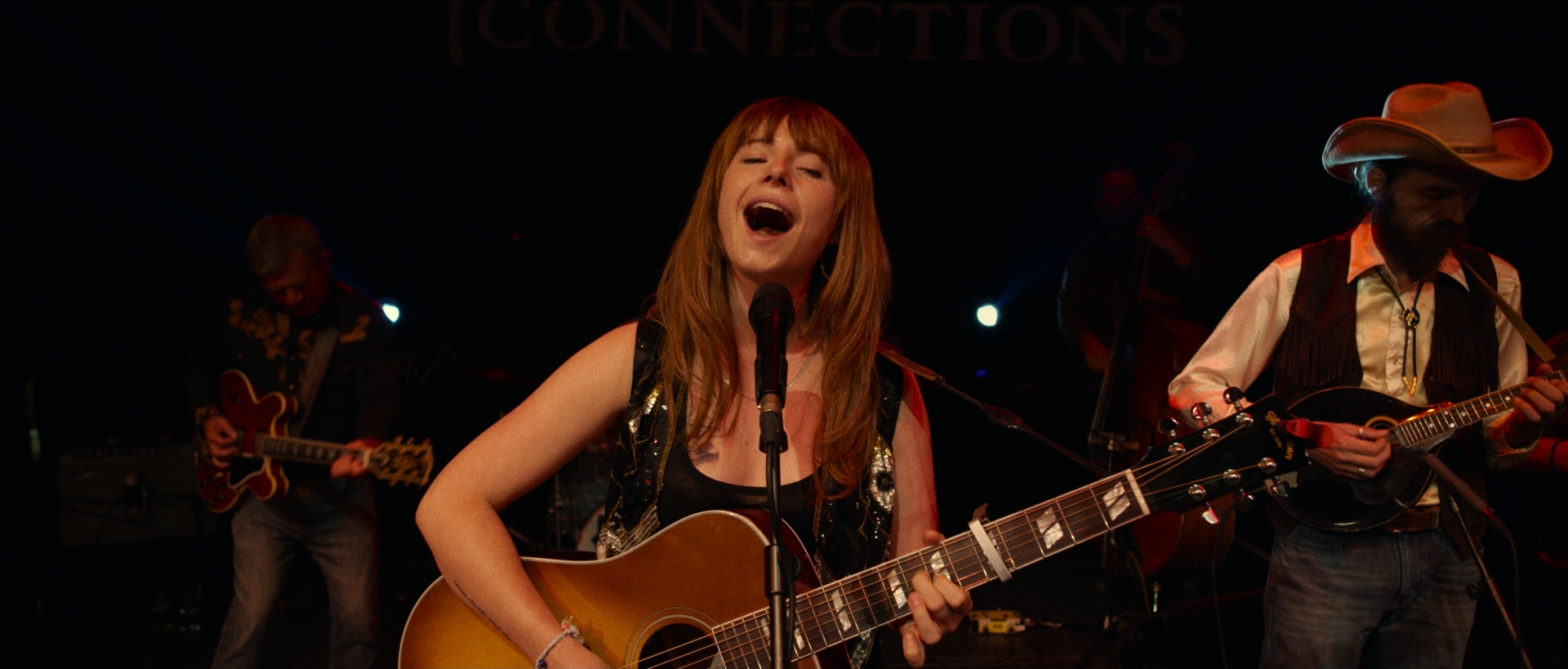With all the fuss that surrounded A Star is Born (2018) about the revival of the movie musical, I hope Wild Rose, a sentimental but pleasing redemptive tale of one woman’s love of country (not “and western”) music and her ambition to make it in Nashville, gets remembered in years to come.
Screenwriter Nicole Taylor’s own addiction to country music is evident, not just through the soundtrack choices (a great cover of Primal Scream’s Country Girl kick-starts the film), but in depicting how the most national of musical cultures can cross oceans and find devotees around the world, in this instance, in Glasgow.
Jessie Buckley, one of the most memorable stars of BBC’s War & Peace and the lead in the haunting Beast from 2017, continues to be one of the UK’s brightest and most reliable acting talents in Wild Rose as Rose-Lynn Harlan, singing (and what a voice!) and causing general revelry, even when her responsibilities of being a mother threaten to dampen her increasingly blinkered desires for musical recognition.
Out of prison on licence, Rose-Lynn is weighed down by her electronic tag – it makes wearing her white cowboy boots a bit more difficult than usual, for one, and restricts her chances in performing at the local country music bar in Glasgow at night. Julie Walters is on fine form as ever as Rose’s loving but beleaguered mother who has cared for Rose’s daughter and son while Rose was serving her sentence for smuggling drugs into prison.
Though we are frustrated at Rose’s neglect of her young children, we are charmed by her obsession with country music, most notably during a sequence where Rose dances and sings with carefree abandon at her new cleaning job at the rather posh home of the well-meaning but privileged Susannah (expertly played, all smiles and enthusiasm, by Sophie Okenedo).
Rose-Lynn is defiant, ill-tempered and brash, with a fiery Glaswegian spirit that makes her a tempestuous but always entertaining protagonist. Even her parole solicitor is infected by her undeniable passion. It’s easy to see why she clings to the music of Bonnie Rait and Emmylou Harris, independent female country stars that have enjoyed autonomy in their careers…and after all, as Rose-Lynn points out, if Johnny Cash can make it with convictions on his record, why can’t she?
A contrived but entertaining sequence where Rose-Lynn gets a chance to visit ‘Whispering’ Bob Harris at BBC Radio 2 hints at Rose-Lynn’s potential as a star, if she could Just. Keep. It. Together., but the plot point where she suddenly realises that she will have to write her own material in order to make it out of the Glasgow club scene, is either a indication of Rose-Lynn’s genuine naivety or a contrivance to propel Rose-Lynn’s own folk tale journey of creative discovery and absolution. Rose-Lynn’s mantra that country music is “four chords and the truth” rings hollow in many aspects of her life, as she struggles to accept the reality of her situation and the hard work that goes into being an authentic voice in an overcrowded industry.
Her undeniable talent carries both the film and the plot, even when it cannot quite decide just how gritty it wants to be. Issues of class and rehabilitation are played for both laughs and pathos, with lots of the heavy lifting left to the ever-capable Walters to remind us of the consequences of Rose-Lynn’s determination to get to Nashville, at whatever cost.
If country music is all about singing from the heart and working through the pain, then Buckley brings this to her performance in spades. Each time she takes to the stage or sings along in headphones as she traverses the streets of Glasgow, we believe it. She hits those four chords and the truth every time, even when the story sometimes lets this intensely watchable film down. The star of the rodeo is undeniably Jessie Buckley.

